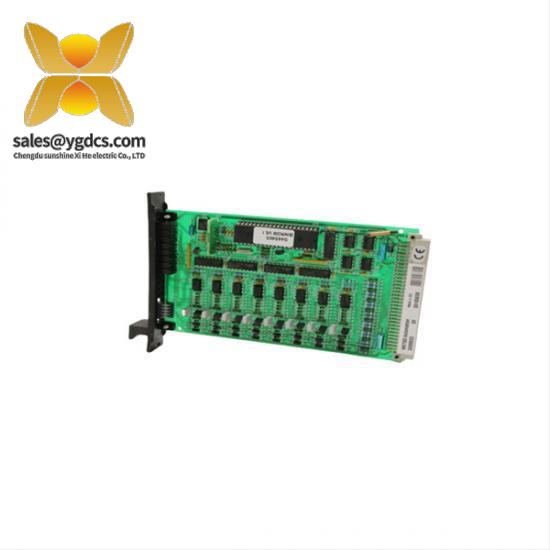Metso D200533 BIU82 Input Module – Advanced Industrial Control Solution
The Metso BIU82 D200533 Input Module is a cutting-edge component designed for seamless integration into industrial automation systems, offering precise signal conversion and enhanced system reliability.
Email:18005021035@163.com
Phone:+86 18005021035
Name:BeiLin
Content details
Operating Voltage:220V
Output Frequency:50kHz
Certification:BIU82 D200533
Series:BIU82 D200533
Material Coding:BIU82 D200533
Dimensions:170mm x 100mm x 50mm
Weight:0.3kg
Input Capacity:16 Inputs
Signal Types:Digital & Analog
Communication Protocols:Modbus RTU, CANopen
Operating Temperature:-20°C to +60°C
Humidity Range:0% to 95% RH (non-condensing)
The Metso BIU82 D200533 Input Module is engineered to deliver unparalleled performance and reliability in harsh industrial environments. This module is specifically designed to ensure accurate signal acquisition, critical for maintaining operational efficiency and safety in various industries.
Featuring a robust design, the module withstands extreme temperatures and pressures, ensuring longevity and continuous operation under challenging conditions. Its advanced signal processing capabilities enable seamless communication between different components of an automation system, facilitating smoother data exchange and improved system responsiveness.
The use of premium materials in its construction guarantees high durability and resistance against corrosion and wear. This not only ensures the module’s lifespan but also reduces maintenance requirements, leading to lower overall operational costs.
Ease of integration with existing systems is another highlight of the Metso BIU82 D200533 Input Module. It is compatible with a wide range of control systems, minimizing the need for system upgrades or modifications. This feature simplifies the integration process, saving time and resources for our customers.
Moreover, the module comes equipped with state-of-the-art diagnostics tools that help in monitoring its health and performance. This proactive approach allows for timely maintenance and intervention, preventing potential downtime and ensuring optimal system performance.




